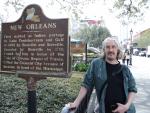By rob mclennan
No time, no time, I have no time.
Throughout the second half of the 1990s, I reviewed three titles a week for my column in The Ottawa X-Press. Scribbled notes that formed into shapes that turn into reviews, essays, fiction, poems and whatever else. What others might have scribbled in the margins, I wrote in notebooks. Scratch, re-scratch, anew. Citation, page, begin again.
On reading tours, training west. Three days in Winnipeg, six days in Edmonton, to Calgary and back, to meet the train. It?s 38 hours from Toronto to Winnipeg, including the small respite in Northern Ontario, with 24 further hours to Edmonton. There is little else to do.
I'd wait for the overnight Via for the chance just to read, those long hours of fiction. Steven Heighton?s The Shadow Boxer, Robert Kroetsch?s What the Crow Said, Thomas Wharton?s Salamander. Once, in mid-air, Margaret Atwood?s Penelopiad. Months I told myself I could only read for pleasure, including novels, during reading tours. Unrequired reading. I had no time. I saved, I put aside, I stacked somewhere beside my travel bags. I had no time, no time, no other time.
What happens when one, as a writer, decides he's too busy to read, waste time, take notes, stare distractedly out the window?
How to balance writing against reading against simply being in the world?
As a writer, there is the constant fear of becoming stagnant, water growing an oily layer. Runs deep, still pools. Am I mixing metaphors again?
How long does it take to write a poem? Who was the author asked the same, who responded: 20 minutes, and 30 years? Take in as much information as possible, all coming together somehow into the small space of writing.
Staring out the window, I sketched a very short story out between naps on the Greyhound from Toronto to St. Catharines, seated directly behind Pearl and Brian Pirie. We were on our way to read. I was deep inside a new novel by Dany Laferrière, I Am a Japanese Writer (2010), and I saw, quite literally, a houseboat tied to a telephone pole on the side of the highway. After another week or two of carving out edits, it whittled to this:
Driving hours down highway, we pass a houseboat docked on a small rise of earth, some 20 miles from the closest body of water. A dream of ocean, between blacktop and tree-line, tied to a hydro pole. What would happen if the houseboat unmoored? Perhaps nothing, perhaps everything. Perhaps the entire illusion of what the anchor holds floating away into unrecoverable distances.
Before the train, the daily writing nests I?d create in cities not my own, for the sense of balance. A little café I visited daily in Halifax, 1998, right near Dalhousie University; another across from MacLeod?s Books in Vancouver; or the Future Bakery on Bloor Street in Toronto, at the corner of Brunswick, where I?ve been Toronto-writing for more than a decade. Much more prevalent before I was married, I?ll admit, but if I was in Toronto at all, it was a pretty safe bet that I could be found in there, scribbling out notes and picking through titles newly-purchased from the neighbouring Book City outlet.
Only through wasting time, it seems, do I manage to get anything done at all. Once, meeting a friend for drinks, I arrived an hour early, in my usual way; book in hand, and notebook. I was reading Catherine Kidd. I read, and ended up with three pages filled with notes.
Writing comes from writing, as David W. McFadden once said, repeating a line he?d most likely read. While this is true, this is also only partly true: writing comes from anything and everything, whatever triggers open the floodgates where information, fragments, ideas, lines and artifacts have accumulated throughout the length and breadth of the writer?s own life. As Charles Olson wrote in his ?Projective Verse?: ?one perception must immediately and directly lead to another.? One line does as well.
Not exactly working, nor staring at the empty page, but reading, open notebook close by. Reading, and letting the mind begin to wander. I travel sans headset, refuse to watch the movie on the Greyhound or the flight, would rather let my mind begin to float, and see just what might come. The 40-odd pages composed on the train from Winnipeg to Toronto, 38 hours with nothing to distract away from what might come next. I read through a Kroetsch novel, I kept trying to sleep, I watched the lights pour by the window. Lines kept rising to the surface, unable to stop. I had no choice but to reach for notebook to keep writing them down.
The only way I get anything done: by staring out the window.
If you want something done, give it to a busy person. But wait, aren?t I advocating for the opposite?
I have nothing now to do but write. How do I begin?

Born in Ottawa, Canada?s glorious capital city, rob mclennan currently lives in Ottawa. The author of more than twenty trade books of poetry, fiction and non-fiction, he won the John Newlove Poetry Award in 2011, and his most recent titles are the poetry collections Songs for little sleep, (Obvious Epiphanies, 2012), grief notes: (BlazeVOX [books], 2012), A (short) history of l. (BuschekBooks, 2011), Glengarry (Talonbooks, 2011) and kate street (Moira, 2011), and a second novel, missing persons (2009). A new work of fiction, The Uncertainty Principle: stories (Chaudiere Books) will be out sometime this winter. An editor and publisher, he runs above/ground press, Chaudiere Books (with Jennifer Mulligan), The Garneau Review (ottawater.com/garneaureview), seventeen seconds: a journal of poetry and poetics (ottawater.com/seventeenseconds) and the Ottawa poetry pdf annual ottawater (ottawater.com). He spent the 2007-8 academic year in Edmonton as writer-in-residence at the University of Alberta, and regularly posts reviews, essays, interviews and other notices at http://robmclennan.blogspot.ca/.


Post new comment